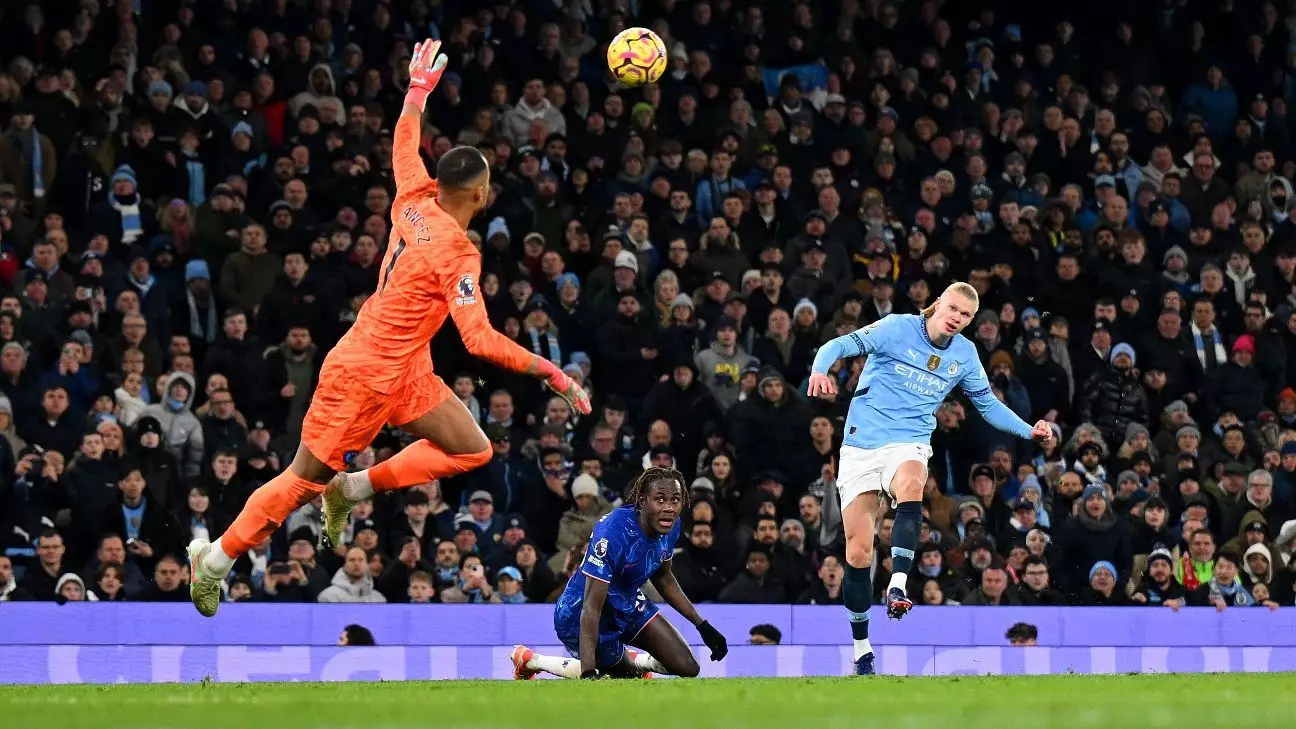Chelsea’s coaching staff, under the guidance of Enzo Maresca, is currently faced with the daunting task of managing the confidence of their error-prone goalkeeper, Robert Sánchez. Following a disappointing 3-1 defeat to Manchester City, Maresca has publicly backed Sánchez, yet conveyed his expectations for a significant improvement. The incident that drew critical eyes occurred when Sánchez, in a moment that could be described as reckless, left his goal line in pursuit of a loose ball but fell short, allowing Erling Haaland to capitalize on the blunder and score. This pivotal mistake underscores a troubling pattern for the 27-year-old keeper, who is now navigating a critical juncture in his career.
Sánchez’s recent gaffe against Manchester City was not an isolated incident, as he had already contributed to a minor setback against Wolves just days prior. Such repeated errors raise questions about whether Sánchez is being overexposed in a challenging environment or if there are deeper issues at play within the team’s defensive structure. The fact that Chelsea invested a substantial amount, approximately £20.7 million, in a young keeper like Filip Jørgensen from Villarreal indicates a recognized need for depth at the position. Yet, Jørgensen has seen limited action, suggesting that there may be a lack of faith in his readiness or ability to step up when needed.
Maresca’s decision to maintain faith in Sánchez signals a complex dilemma. On one hand, supporting a struggling player can foster confidence and establish trust in the squad. On the other, consecutive errors can erode a team’s morale and faith in their goalkeeper. Maresca stated that he wants to see a “reaction” from Sánchez in the upcoming week, a clear indicator that the stakes are high. If Sánchez does not improve, could this lead to a rethink of the team’s strategy moving forward?
Despite these issues, Maresca remains optimistic about the overall progress of the team, asserting that Chelsea has improved compared to previous months. This statement presents an interesting counterpoint to the immediate concerns surrounding Sánchez. The challenge lies in balancing individual performance against team dynamics. One win in seven Premier League matches raises alarms, yet the coach is adamant that the team continues to develop.
It could be argued that even amidst the turmoil, Chelsea is in a transitional phase—an adjustment period that may be necessary for long-term success. Yet, the need for immediate results will only amplify as the season progresses, creating the delicate task of nurturing talent while demanding accountability. As the next match approaches, all eyes will be on Sánchez, not just to see if he can reclaim his form, but to assess whether Chelsea can find a way to turn their troubled situation around.

Leave a Reply